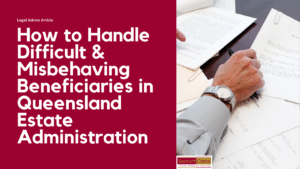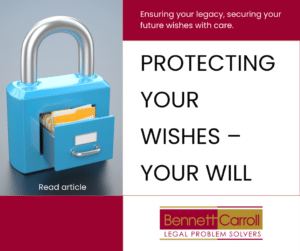Handling the financial affairs of a deceased loved one can be a challenging and emotional task. Among the many responsibilities that come with administering a deceased estate in Queensland, one crucial aspect is dealing with taxes. Understanding whether a tax return is required for the deceased estate is essential to ensure compliance with the law and avoid potential legal issues. Let’s delve into the process of handling tax matters for a deceased estate in Queensland.
Notification of Death: The first step in managing the tax affairs of the deceased estate is to notify the Australian Taxation Office (ATO) of the individual’s passing. This can be done by the executor or administrator of the estate. The ATO should be informed as soon as possible after the date of death to prevent any penalties for late reporting.
Tax File Number (TFN): The deceased person’s TFN becomes inactive upon death. The executor or administrator should apply for a new TFN on behalf of the deceased estate. This unique TFN will be used for the estate’s tax reporting.
Deceased Person’s Final Tax Return: The executor or administrator is responsible for preparing and lodging the final tax return for the deceased individual for the period from the beginning of the financial year until the date of their death. This return should include all income earned up until the date of death and any deductions that may apply.
Income earned by the Deceased Estate: After the date of death, any income generated by the estate, such as interest on bank accounts, dividends, or rental income, will be subject to tax. The executor must report this income on the estate’s tax return.
Deductions and Expenses: The executor can claim relevant deductions and expenses incurred during the administration of the estate. This may include legal fees, accounting costs, and expenses related to the maintenance of estate assets.
Capital Gains Tax (CGT): If the deceased owned assets, such as property or investments, their disposal might trigger CGT. The executor needs to calculate and report any capital gains or losses on the deceased estate’s tax return.
Family Trust Elections: If the deceased was a part of a family trust, the executor must decide whether to continue the trust as a deceased estate. This decision has implications for tax treatment, and professional advice may be necessary.
Tax Payment and Distribution: The executor must pay any outstanding tax liabilities from the estate’s funds before distributing assets to beneficiaries.
Legal and Financial Advice: Handling tax matters for a deceased estate can be complex. It is highly advisable for the executor or administrator to seek professional advice from a solicitor or tax specialist with experience in dealing with deceased estates to ensure compliance with the tax laws and regulations.
Timeframe: The tax return for a deceased estate must be lodged within the usual time frame for tax returns, which is usually by October 31st following the end of the financial year for individuals.
In conclusion, yes, a tax return is required for a deceased estate in Queensland. The executor or administrator must navigate the tax implications, lodge a final tax return for the deceased individual, and manage the tax obligations of the estate until it is fully distributed to the beneficiaries. Seeking professional advice can ease the burden and ensure the estate complies with all tax obligations, allowing the grieving process to proceed more smoothly.
Call us on or email and safeguard your interests every step of the way- We are your legal problem solvers.









